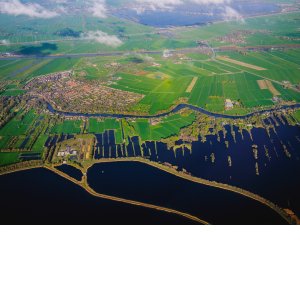
NICE-R, a free, open source user-tailored tool to explore the potential of NbS for treating different types of wastewater in cities, rural and peri-urban areas
Urban and rural regions face a moment of difficulty related to water pollution and lack of means to access clean water resources compared to the past. Regions are challenged by lack of adequate treatment of contaminated water and, more importantly, wiser approaches of treatment and reuse, in need to address the alarming increase in the scarcity of clean water resources. Treatment and reuse at the source is a wise approach to overcome the decreasingly available potable water access in many regions.
Unfortunately, what we often see is quite the opposite. Instead of retaining, using, treating and reusing water in the most nearby location where it can be made available for us, we end up collecting water sources from distant locations or by pumping it from increasing scarce underground and surface reservoirs. After using it for our domestic, industrial or agricultural applications, polluted water is directly thrown into rivers, lakes, seas or the conventional piping system that, in the best case scenario, connects to central traditional treatment facilities.
Can we transform these models? Can circular models based on on-site use, treatment and re-use be applied, rather than conceived in a way that wastes the potential to make best use of what we have in place?
As part of the EU-funded Horizon 2020 NICE Project, we’re excited to invite you to our upcoming event on Wednesday, September 18th, from 2:00pm to 4:00pm Central European Time. NICE experts will share new ways to manage water more efficiently in urban, rural, and peri-urban areas.
During the session, NICE will introduce its main nurturing theoretical concepts about enhanced natural treatment systems, implemented as natural technologies in different built up spaces for the purpose of retaining, treating and, ultimately, reusing the treated water at a community-based level. The event will also demonstrate how a free, user-friendly software tool, NICER NetNature 2, can help with designing these solutions. Developed by the Swedish University of Agricultural Sciences, a highly reputable institution in the field, this tool models nature-based solutions for urban wastewater treatment and reflects the innovative research from the NICE Project.
Dr. Neil Sang and the NICE team have put considerable effort into creating this software, and believe you’ll find it invaluable. This is a great chance to learn about the software, ask questions directly to the developers, and even sign up for a future engagement round to see how it works and participate in its validation.
Want to join? Now all you have to do is register.
Learn more about the 6th NICE Cities Panel.
